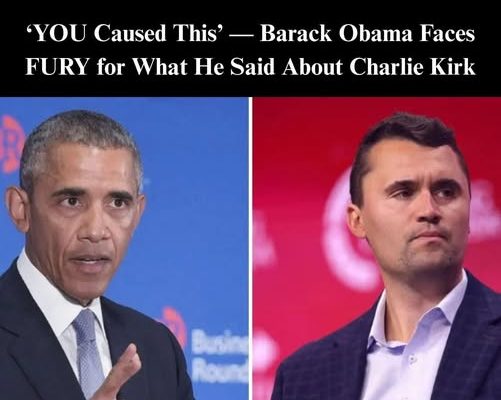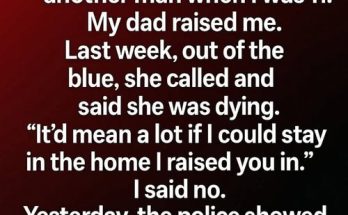The assassination of conservative commentator Charlie Kirk has sent shockwaves across the United States, sparking mourning, outrage, and a growing political storm. As investigators continue to gather evidence surrounding the incident, a parallel battle has erupted in Washington and across the media landscape—one centered on blame, political rhetoric, and the toxic climate that many fear contributed to the tragedy.
At the heart of this debate are pointed accusations: conservatives blaming left-wing rhetoric for encouraging extremism, progressives countering that right-wing leaders have long inflamed tensions, and a shaken public struggling to process the rising tide of violence in American politics.
The Tragedy in Utah
Federal officials confirmed that the assassination was a targeted attack, carried out in Utah by a gunman reportedly dressed in dark clothing and firing from an elevated position. Authorities have not released all details due to the ongoing investigation, but the FBI has stated the assailant deliberately targeted Kirk.
Law enforcement is urging anyone with information to come forward, stressing that community cooperation is vital. “Public tips are essential in building a clearer picture of the events leading up to this tragedy,” one FBI spokesperson said.
The chilling nature of the attack has sparked questions about security protocols at political events, the preparedness of local authorities, and whether more could have been done to prevent such violence.
Trump Points to “Radical Left Rhetoric”
Former President Donald Trump was among the first to publicly respond, issuing a statement that directly blamed what he described as “radical Left rhetoric” for creating the hostile environment that led to Kirk’s death.
“The climate of hatred being fueled by far-left extremists has real consequences,” Trump declared at a rally. “The constant demonization of conservatives is dangerous, and it must stop.”
His comments reflect a growing belief among conservative leaders and commentators that the language used by prominent Democrats and liberal activists is escalating tensions. According to Trump and his allies, the labeling of conservatives as dangerous or extremist has emboldened individuals to commit violence.
Warren Pushes Back
Senator Elizabeth Warren, however, rejected this line of reasoning, turning the blame back toward Trump and his movement. “Why don’t you start with the President?” she said in response to a reporter’s question about whether Democratic rhetoric played a role.
Warren and other progressives argue that Trump’s own words over the years have stoked division and created a culture of hostility. They contend that attempts to blame Democrats are little more than political deflection, distracting from the broader problem of heated rhetoric across the spectrum.
A Nation Divided Over Rhetoric
The clash between Trump and Warren underscores the central dilemma: to what extent does political speech influence violent acts? For years, experts have warned that America’s increasingly toxic discourse risks fueling extremism.
-
Supporters of Trump’s view argue that comparing conservatives to extremists or invoking terms like “Nazis” dehumanizes individuals and opens the door for violent action.
-
Critics of Trump counter that his combative style of politics, including sharp attacks on opponents, has also raised the temperature of public discourse and normalized aggression.
This debate is not new, but Kirk’s assassination has amplified it in ways that feel urgent and unavoidable.
The Role of Political Language
Scholars studying political communication note that rhetoric has always been a powerful tool—but in the era of social media, its reach and intensity have multiplied. Words once confined to campaign speeches now circulate instantly across millions of screens, shaping perceptions in real time.
“Language frames how we see one another,” explained Professor Michael Grant, a political scientist specializing in extremism. “When political leaders describe opponents as existential threats, it lowers the barriers to hostility and makes violent action appear justified to a small but dangerous subset of individuals.”
This dynamic is why critics on both sides are urging greater responsibility in public communication. Yet in a climate of polarization, efforts to tone down rhetoric often clash with the pressures of mobilizing political bases.
FBI Confirms Targeted Nature of Attack
The FBI’s confirmation that Kirk was deliberately targeted raises serious concerns about the safety of public figures in the United States. While political violence is not new in American history, recent years have seen an alarming rise in threats and attacks.
Authorities have emphasized that the Utah gunman’s motives remain under investigation, but the precision of the attack has sparked fears of growing organization among extremist actors.
“Targeted political violence poses a unique threat to democracy,” said former homeland security official Angela Ramirez. “It not only takes lives but also seeks to silence voices and intimidate entire communities.”
Public Reaction and Grief
Beyond politics, ordinary citizens are mourning Kirk’s death. Vigils have been held in several cities, where supporters and even critics have come together to denounce violence.
One attendee at a candlelight gathering in Dallas summed up the sentiment:
“We disagreed with him on many issues, but no one should lose their life for their political beliefs. Violence is not the answer.”
The bipartisan attendance at such events reflects a shared recognition of the seriousness of the moment, even amid deep political divides.
The Political Blame Game
Still, in Washington, the tragedy has quickly become another battleground. Trump’s allies are calling for Democrats to accept responsibility for “inflammatory rhetoric,” while progressives are highlighting years of heated remarks from Trump and other conservative figures.
This blame game risks overshadowing the deeper issue—how to prevent further political violence in a nation already marked by division.
“Assigning blame might score political points,” said analyst David Harper. “But unless leaders work together to cool down the temperature, tragedies like this risk repeating themselves.”
The Broader Context: Political Violence in America
Kirk’s assassination is part of a troubling trend. In recent years, the United States has witnessed an increase in violent incidents linked to politics—from attempted kidnappings of elected officials to attacks on government buildings and campaign events.
Experts cite several factors behind this rise:
-
Hyper-Partisan Media – Outlets catering to ideological audiences often amplify anger and fear.
-
Social Media Algorithms – Platforms reward outrage, spreading extreme content faster than balanced perspectives.
-
Erosion of Trust – Declining faith in institutions has left people more susceptible to conspiracy theories.
-
Polarized Identity – Political affiliation increasingly defines personal identity, making disagreements feel existential.
Together, these dynamics create fertile ground for violent actors.
Calls for Unity and Restraint
In the aftermath of the tragedy, some voices are calling for restraint and a return to civility. Religious leaders, civic organizations, and even some politicians are urging Americans to reject the culture of hate and recommit to dialogue.
“Disagreement is the foundation of democracy,” said Reverend Paul Jenkins of a Chicago church. “But disagreement must never lead to dehumanization. The moment we treat opponents as enemies, we all lose.”
Such appeals, however, face an uphill battle in a political environment dominated by polarization.
Could the Tragedy Have Been Prevented?
Security analysts are now questioning whether more could have been done to prevent the Utah attack. Were warning signs missed? Could stronger protective measures have saved Kirk’s life?
While these questions may not have clear answers, they highlight the importance of investing in both physical security for public figures and social strategies to reduce radicalization.
“Prevention is not just about guards and barriers,” noted security expert Jonathan Miles. “It’s about addressing the culture of extremism that inspires attacks in the first place.”
Looking Ahead
As the investigation continues, the leaked details of the attack and the political responses it has triggered will remain central to national discussion. The tragedy has already shaped the upcoming election cycle, with candidates on both sides seizing the moment to emphasize their narratives about security, extremism, and freedom of speech.
What remains uncertain is whether the assassination of Charlie Kirk will become a turning point—leading to greater responsibility in political discourse—or simply another tragic milestone in a cycle of escalating division.
Conclusion
The murder of Charlie Kirk was not just an attack on a single individual. It was a reminder of the dangers facing a society increasingly consumed by polarization and hostile rhetoric. The FBI’s confirmation of the targeted nature of the shooting underscores the seriousness of the threat.
Whether one agrees with Trump’s claim that “radical Left rhetoric” played a role, or with Warren’s insistence that Trump himself bears responsibility, the tragedy illustrates a sobering truth: words matter. Political rhetoric has consequences, and unless leaders across the spectrum choose restraint, the cycle of violence may continue.
For now, the nation mourns the loss of a polarizing but influential figure, while wrestling with the broader question of how to build a future where political differences are resolved through debate—not bloodshed.



